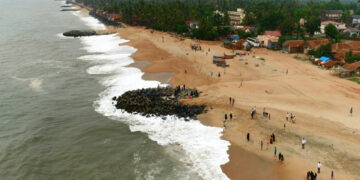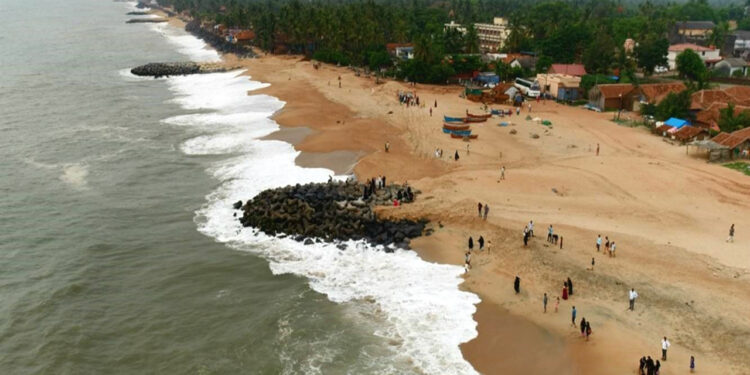By Riches Soberekon
Coastal communities in Benin are facing a losing battle against the encroaching sea, with experts estimating that the country loses approximately 30 meters of coastline every year.
The combination of climate change and rising sea levels has exacerbated the vulnerability of the region, making it increasingly difficult to protect homes and businesses from the relentless advance of the ocean.
Despite investing millions of dollars in coastal protection measures, the government has struggled to keep pace with the rapid erosion. While the construction of 13 protective structures along the beaches, east of Cotonou has helped to slow the ocean’s advance, experts warn that these interventions are merely delaying the inevitable.
Rising water levels and the increasing frequency of extreme weather events, such as storms and high waves, are putting additional strain on the coastline. These factors, coupled with a lack of effective monitoring and maintenance of coastal infrastructure, have further accelerated the erosion process.
The impact of coastal erosion is not limited to Benin; it is a growing concern for coastal communities around the world. The issue is expected to be a major topic of discussion at the upcoming COP28 climate change conference in Dubai in December.
While there are no easy solutions to the problem of coastal erosion, experts emphasize the need for a comprehensive approach that combines traditional protection measures with innovative adaptation strategies.
This may include relocating vulnerable communities, developing more resilient infrastructure, and investing in research and development to find new ways to mitigate the effects of climate change.
It is clear that the battle against coastal erosion will be a long and difficult one. However, by taking proactive measures and working together, coastal communities can hope to protect their homes, livelihoods, and cultures from the relentless forces of nature.




































